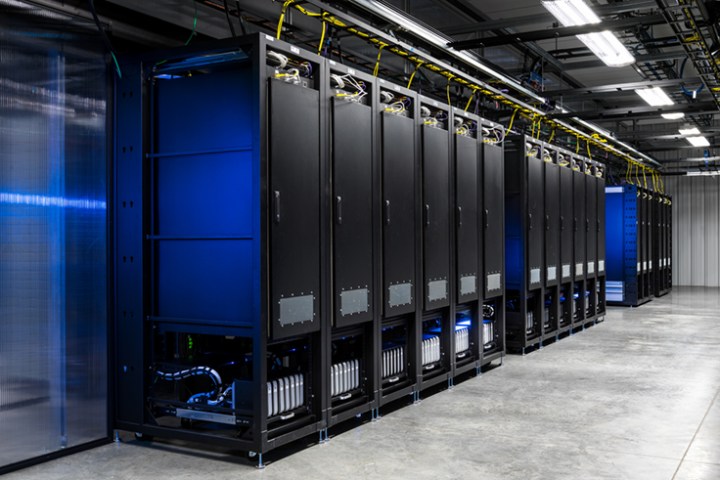
Backpack basically connects all the racks of a server within a data center. The second-gen modular switch will see Facebook’s data centers make the jump from 40-gigabit fiber optic networking to 100-gigabit.
Facebook claims the “Backpack” system is already in production at its headquarters (likely within its massive Area 404 hardware lab). Facebook also plans to submit its design to the Open Compute Project (OCP) — a coalition of tech giants that share computer infrastructure frameworks in order to accelerate growth and push down prices. It’s hoping the input of the wider tech community will help it, and others, to build upon the Backpack ecosystem.

As the company moves toward a more video-centric platform (Facebook claims 70 percent of its traffic will be generated by the format by the year 2021), it must ensure it can meet the bandwidth requirements high-quality media content demands. Seeing as a 100-gigabit network consumes significantly more power than a 40-gigabit network, the real risk is that the system will overheat. Critically, the company claims its second-gen switch opens up more air channel space for a better thermal performance. Backpack has been put through several test phases that focus on engineering, design and production validation at Facebook’s Altoona data center in Iowa.
“Backpack … [brings] faster bandwidth and better bandwidth to everyone,” said Jay Parikh, head of engineering and infrastructure at Facebook, at the Structure tech conference.
Facebook also recently unveiled its first telecom hardware equipment device, dubbed “Voyager.” The open source white box” transponder is designed to link data centers using a high-speed optical networking system that can cover large geographical distances. Voyager is part of the company’s Telecom Infra Project, an open source telecoms initiative similar to OCP.


